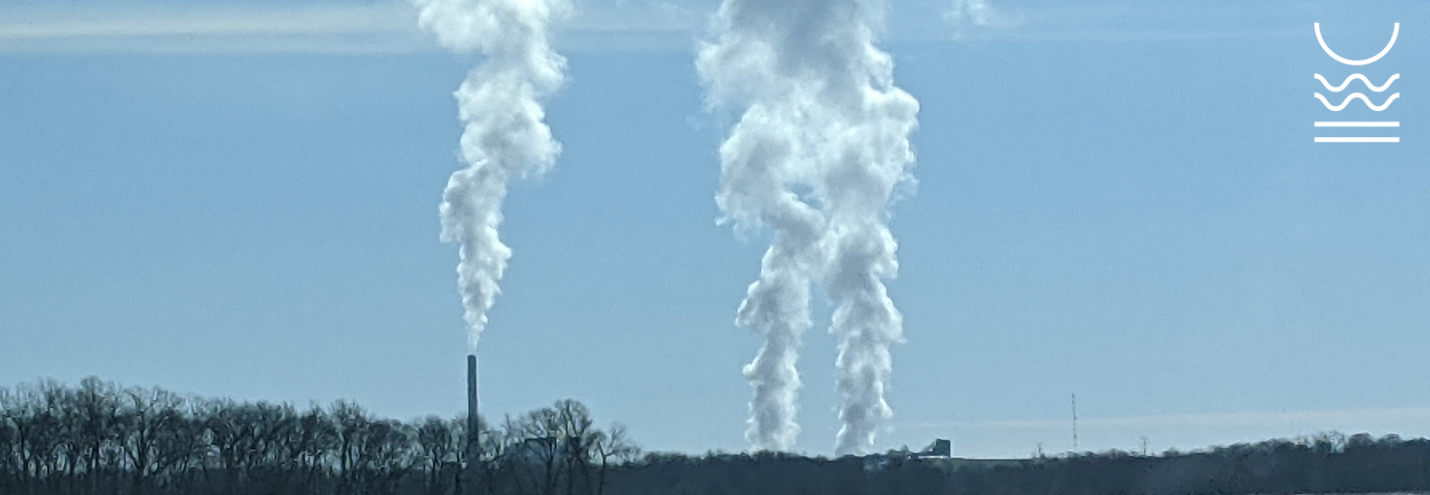New coal ash regulations protect Iowans from toxic water pollution
posted
by Michael Schmidt on Monday, May 13, 2024

Update on May 28, 2024: We have learned that after IEC submitted its comments, Alliant Energy told Department of Natural Resources (DNR) that it will no longer seek in this permit to discharge its coal ash leachate from the Ottumwa coal plant. IEC will continue to look into the disposal of the leachate going forward, as it is still being generated. The most likely alternative is sending the coal ash leachate to a wastewater treatment facility. This does not eliminate the metals of concern, but they might be removed through the treatment process.
New EPA regulations about coal ash will have an immediate impact in Iowa. On May 3rd, IEC submitted public comments on a draft permit that proposed to allow discharges of coal ash leachate upstream from the drinking water intake for Ottumwa. The new EPA regulations, adopted during the permit’s public comment period on April 25th, will prohibit the discharges in the proposed permit.
The Ottumwa coal plant, operated by Alliant Energy, is one of five coal plants majority-owned by MidAmerican Energy in Iowa. Coal’s contribution to climate change is widely known, but the public understands less about the toxic solid waste byproducts and threats to drinking water sources. Iowa’s coal plants produce a lot of waste each year: estimated at more than 160,000 tons in 2020 alone. That’s heavier than the world’s largest aircraft carrier or 1,000 blue whales.
.png)
The Clean Air Act prohibits most of the ash produced by burning coal from being emitted into the air, because the particles have serious health consequences. Instead, it accumulates in enormous landfills. Rain and snow drain through the waste, picking up heavy metals and other contaminants. The resulting leachate – a soup of toxic pollution – is collected and sometimes discharged to surface water.
The draft Ottumwa coal plant permit proposed to mix the toxic leachate with other wastewater from the coal plant, then discharge it into the Des Moines River. IEC determined that the discharge would contain thousands of pounds per year of dissolved solids, including arsenic, lead, and other toxic metals. It likely contains mercury, a neurotoxin that accumulates in aquatic life and people, but Alliant has not been monitoring for mercury so the amount of it is unknown. The discharge point is a few miles upstream of the Ottumwa Water & Hydro drinking water intake.
.png)
Those heavy metals don’t have to go into the river. EPA’s new regulations actually set a very different standard: no discharge at all. EPA reviewed the treatment options for coal ash leachate and concluded that treatment is feasible, including zero-discharge options (through evaporation) and chemical precipitation. EPA’s rule prohibits coal ash leachate discharges from facilities like Ottumwa by 2030 – around the time the reissued permit will expire. The reissued permit will need to address the new federal requirements.

Other coal plants in Iowa have managed to meet the new standard, although not always happily. Last year, MidAmerican Energy proposed to start discharging the coal ash leachate from the George Neal North (Neal Unit 3) coal plant near Sioux City into the Missouri River. Right now, the facility uses evaporation to avoid discharging its coal ash leachate. IEC pointed out in detailed comments that MidAmerican’s proposal had serious faults and did not meet legal requirements. Hundreds of Iowans also shared their concerns with MidAmerican. MidAmerican decided not to move ahead with the new discharge, and last month the DNR reissued the permit for Neal North without allowing coal ash discharges.
The new EPA rules will ensure that Iowans no longer have to deal with the toxic metals from coal ash leachate in our drinking water sources. But DNR must begin enforcing compliance with the law and should develop a permit compliance schedule that allows no discharge as better options are available for these coal ash toxins that threaten the safety of the Ottumwa water supply.
- carbon pollution
- clean energy
- clean water
- clean water act
- coal
- dnr
- drinking water
- environmental justice
- land stewardship
- public health
- water quality
- water safety